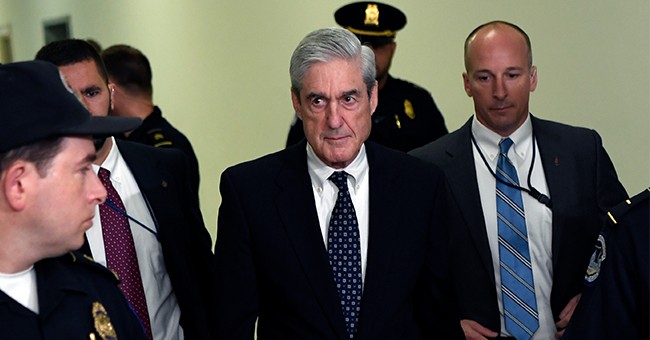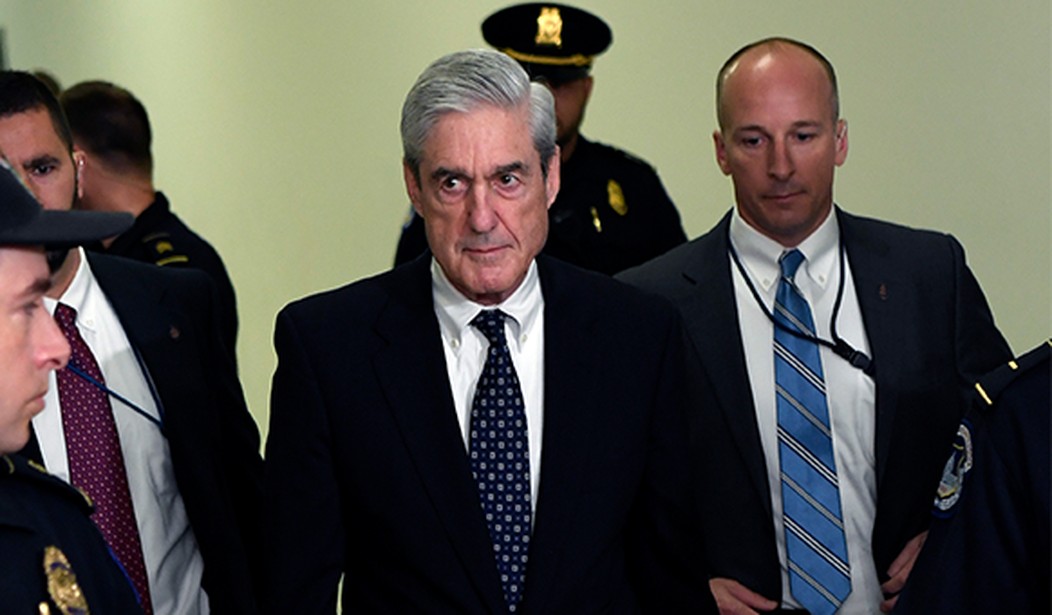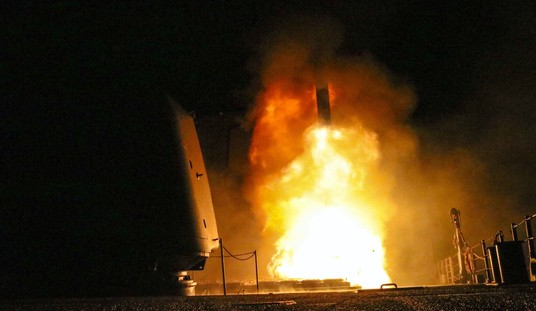
I’ve watched this story for 72 hours to see if anything new might develop.
On September 1, 2020, journalist Sarah Carter broke a story based on confidential sources that in a briefing of the Senate Intelligence Committee, the FBI and Department of Justice informed the committee that the “Woods File” for the Carter Page FISA application had been somehow “lost” at some unknown point in time. She reported that the Committee was told that the contents of the file had been “recreated” by the Robert Mueller’s Special Counsel office by “reverse engineering” — my words — through examining the application and determining what factual allegations would have required supporting documentation normally contained in a “Woods File”.
I have not seen any other news outlet report this story, so all I have at this point is Carter’s story which she attributes to “sources familiar with the proceedings” before the Intelligence Committee.
As a refresher readers should understand that the “Woods File” is a process by which the FBI case agent on a FISA application documents a source for every factual allegation set forth in the application. It is named after a member of the FBI General Counsel’s Office who first devised the validation process as part of reforms to the FISA process put in place by Robert Mueller when he was Director of the FBI.
Here is what Carter reports based on her sources familiar with the hearing:
The original Woods file on former campaign advisor Carter Page went missing more than two years ago, and according to sources who spoke to SaraACarter.com, those documents had to be recreated by the FBI and former Special Counsel Robert Mueller’s team in 2018 from the Foreign Intelligence Surveillance Application used by the bureau to obtain the warrant on Page.
The woods file procedure, which was overseen by FBI Supervisory Special Agent Joe Pientka, and ultimately former FBI Deputy Assistant Director Peter Strzok, was used to verify the contents in the Foreign Intelligence Surveillance Act application that was used to obtain a warrant to spy on Page.
Moreover, during Pientka’s numerous interviews with investigators from the DOJ’s Inspector General’s office, who likely have worked for both Michael Horowitz and Connecticut prosecutor John Durham – the fact that it was a recreated Wood’s file was never disclosed.
Where to begin?
How about with the “disappearance” of an electronic file in a system where nothing disappears. The Woods File is a subfile in the investigation’s case file. It is created by the Case Agent by scanning in the documentary sources used as the basis to make factual allegation in the affidavit.
The purpose of having the file is so that when third parties — supervisors, subsequent case agents, other agencies — who review the affidavit and have questions about a particular allegation, they can go to the Woods File and find the specific documents from which the allegation was sourced. The file is not intended to “prove” the allegation true — only that the allegation has a source, and what that source is.
A question that has never received enough scrutiny is the role of the Special Counsel’s office in seeking the third extension of the Page FISA warrant. That extension was requested on June 29, 2017. That is six weeks after Mueller was appointed Special Counsel, and responsibility for Crossfire Hurricane was transferred to the Special Counsel’s Office.
The IG Report on Four FISAs pirouettes around this question on Page 219 in the following fashion:
On June 29, 2017, a day before FISA coverage on Carter Page was going to expire, and at the request of the FBI, the Department filed an application with the FISC requesting an additional 90 days of FISA coverage targeting Carter Page.
Well, that was stating the obvious — to say the least. Of course, the FBI requested it — the FBI obtained the original FISA and the FBI had been accessing records and other information on Page through the FISA. And saying “the Department filed an application” is equally unenlightening because only the “Department” can file such an application. But the Report does have the following “pregnant” footnote:
On May 17, 2017, the Crossfire Hurricane cases were transferred to the Office of the Special Counsel. Although agents and analysts were working with the Special Counsel, the FISA application was still subject to Department approval and notification requirements.
What that footnote suggests but doesn’t make explicit is that the FBI agents who sought the third extension were working for the SCO when the decision was made to seek the third extension — i.e., if the SCO had not wanted the third extension, no such effort would have been made. There is NO suggestion that anyone at FBI HQ or DOJ — separate from the SCO — commanded that the third application be made to extend the FISA warrant.
And this brings us to a critical issue — did SCO review the original application and first two extensions, compare the allegations in the applications against the Woods File, and realize the scope of the problems? Were these problems known before the third extension was sought under the authority of the SCO?
How does the Woods File — stored electronically in the FBI’s Sentinel database — get “lost”? And at what point in time did the SCO decide it was necessary to “reconstruct” a replacement Woods File by reverse engineering it through analyzing the applications to determine the specific factual allegations needed source documentation — other than the Steele Memos — in order to justify their inclusion in the third application to extend.
Was the ACTUAL Woods File so lacking — or so dependent on the allegations of the Steele Memos — that someone in the SCO realized it was a “ticking time bomb” waiting to be uncovered once an authorized investigator was given the responsibility to sort things out?
We learn on page 220 of the IG Report that when time arrived for the third application, there were already concerns among the FBI personnel involved that the FISA warrant was “going dark” — it was yielding little of value in May and June, 2017. In addition, Carter Page had been interviewed multiple times at that point, telling Agents who did the interview that he suspected he was under surveillance. Yet “Case Agent 6” and “Supervisory Special Agent 5” decided to proceed with the third extension according to the IG Report at page. 220.
Let’s take a moment to focus on Case Agent 6. At Page 211 of the Report it reads as follows:
Following the interviews with Carter Page and review of the FISA collections, agents working on the Carter Page investigation discussed and had differing opinions about seeking a second renewal. Case Agent 6 told us that although he reviewed the FISA collections when he was assigned to the Carter Page investigation in February 2017, he had not reviewed enough information to make a determination as to whether seeking a renewal was necessary.
But Case Agent 6 learned much more about Carter Page after becoming responsible for the Page investigation in February 2017:
Further, in March 2017, Case Agent 1 and Case Agent 6 conducted five voluntary interviews with Carter Page. During those interviews, Carter Page provided the following: information about his July and December 2016 trips to Moscow; individuals he denied meeting to include Igor Sechin and Paul Manafort; a trip to Singapore in February 2017 for Gazprom Investor Day; and his lack of involvement in the Republican National Committee’s (RNC) platform change on assistance to Ukraine. Carter Page also discussed his contacts with Gazprom, his assumption that he was under FBI surveillance, and he denied that anyone from Russia asked him to relay any messages to anyone in the campaign.
When it came time for the second extension of the Page FISA warrant in April 2017, Case Agent 6 had a substantial body of knowledge concerning Page, as well as information calling into question the allegations about Page being a Russian “agent” as alleged in the Steele Memos.
[Case Agent 6] told us that he reviewed [REDACTED] in which Carter Page [REDACTED]. Case Agent 6 told us that although this email and Page’s statements in an interview caused him to question whether it was worth seeking Renewal Application No. 2, he ultimately did not disagree with Case Agent 1 and SSA 5 who told him they wanted to continue the surveillance of Page. He also said that he discussed seeking the renewal with his NYFO Special Agent in Charge and did not recall any disagreement about seeking a second renewal from anyone working on the investigation.
Those are critical redactions in December 2019 when the IG Report was issued. The redactions hide the subject of “this email” which follows in the next sentence concerning what Case Agent 6 understood about Page and his interview statements. What critical email on this question exists? Without question it is almost certainly this email:
Additionally, Case Agent 1 received an email on August 10, 2016, containing an attachment titled “Carter Page-Profile,” which had been prepared by a Crossfire Hurricane Staff Operations Specialist (SOS). The profile, dated August 1, 2016, quoted the 2009 EC regarding Page’s statements to the FBI about his contact with the other U.S. government agency.
As noted in the IG Report, Case Agent 6 and SSA 2 sought the third renewal of the FISA warrant. At the time, the investigation was the responsibility of the SCO. SSA 2, the Affiant on the third renewal, is the person who tasked OGC Attorney Kevin Clinesmith to get confirmation from the CIA that Page had not been a “source” for the CIA as claimed by Page in the media and to the FBI.
Clinesmith has now pled guilty to altering the email he received back from the CIA, making it state definitively that Page “was not a source” when the CIA had not said that — in fact, the CIA said the opposite.
Clinesmith worked with Case Agent 6 and SSA 2 on the third renewal application — while the investigation was with the SCO — which DOJ later told the FISA Court was not supported by probable cause.
The Special Counsel’s Office later included the following footnote in the March 2019 Mueller Report at p. 13:
1. FBI personnel assigned to the Special Counsel’s Office were required to adhere to all applicable federal law and all Department and FBI regulations, guidelines, and policies. An FBI attorney worked on
FBI-related matters for the Office, such as FBI compliance with all FBI policies and procedures, including the FBI’s Domestic Investigations and Operations Guide (DIOG). That FBI attorney worked under FBI legal supervision, not the Special Counsel’s supervision.
And now we have Sara Carter’s report that the “Woods File” for the Page FISA application was at some undetermined point in time “recreated” by the Special Counsel’s Office after the original file was “lost” in an electronic database that doesn’t “lose” things.
Mueller’s prosecutors supervised the application for the third extension of the Page FISA warrant. They knew that Clinesmith worked hand-in-hand with Case Agent 6 and SSA 2 on putting together that extension application. Mueller’s prosecutors knew of Page’s denials about having been involved with Russian intelligence agents – which he made in interviews with Case Agent 6, and which were well documented in the Crossfire Hurricane files.
Case Agent 6 had interviewed Page multiple times in March 2017, had reviewed the Page Profile prepared by the FBI about Page’s prior reporting TO THE FBI about his contacts with the CIA, and had reviewed the CIA memorandum from August 2016 in which the CIA explained to the Crossfire Hurricane team the nature and extent of Page’s history with the CIA.
Case Agent 6 knew the problems with respect to the “sourcing” in the Steele Memos because he was fully briefed, and had read the 57 page EC on the January 2017 interview with Steele’s primary sub-source, Igor Danchenko, who had undermined much of the information in the Memos that Steele attributed to him.
To COVER ALL THIS UP after the Mueller Prosecutors had signed off on seeking the third extension, the cut loose Clinesmith in the Report because they knew by that time of his falsification of the CIA email, the Mueller Prosecutors then “reverse engineered” the Woods File so it would appear to have been much more complete than it had been when the third extension was approved by the Mueller Prosecutors. It is impossible to know now whether the “recreated” Woods File is a “fair and accurate” representation of the Woods File as it existed in June 2017 when the Mueller Prosecutors approved the third application for a FISA extension.
COVER UP.














Join the conversation as a VIP Member